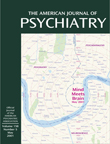Aiming to outline best practices from around the world, contributors to this book take a hard look at urban mental health systems in 10 international settings. Prepared by local mental health planners for presentation at a 1997 Maudsley conference, both relatively resource-rich (Copenhagen and Amsterdam) and resource-poor (Bangalore, India; Alegre, Brazil) service settings are described in considerable detail.
Cross-national disparities in health care expenditures provide one context for understanding differences in service organization and delivery. In India, the annual public spending on health is $3 per person per year (compared with Denmark at approximately $2,100 per person per year, or the United States at nearly $4,000 per person per year). In Bangalore there is no coordinated public health structure, and no attempt is made to link services in the city by any system: “A large factor in the use of a service is the economic status of the patient” (p. 83). At the same time, all major general hospitals in Bangalore have psychiatric units, the National Institute of Mental Health and Neurosciences is the largest postgraduate psychiatric training center in India, and Bangalore is home to seven halfway houses for people with mental illness: 75% of all such facilities in India.
Integrating mental health knowledge into primary care is the major public mental health strategy in developing world cities. Throughout Iran, for example, multipurpose health workers (called “behvarz”) deliver care in approximately 15,000 rural health houses or urban health posts throughout the country. The behvarz are expected to have sufficient familiarity with psychiatric conditions to initiate referral for specialized assessment and provide aftercare for psychiatric patients evaluated by specialists. Through a regionalized system, health houses operate under the supervision of a provincial medical university, where psychiatry is taught as an independent medical specialty.
Health systems in the United States and other developed countries (United Kingdom, Japan, Australia, Italy, Denmark, Holland) struggle with the concentration of mentally ill individuals in urban areas, where poverty, substance abuse, and inadequate treatment resources too often yield homelessness, victimization, and criminalization. Both an increasing number of older individuals and growing young urban immigrant populations are at high risk for these adverse outcomes. The collapse of a humane infrastructure for the seriously mentally ill is greatest where funding is inconsistent, health and social service systems are poorly integrated, and mental health services are fragmented in a manner that discourages continuity of care for the individual patient.
What emerges across the world is a picture of contrasts and commonalities. Cultural contexts, expenditure levels, availability of trained manpower, and extent of central service coordination differ widely. Yet mental illness itself and the needs of the seriously mentally ill are remarkably consistent. Hospital care is the single largest budget item in each of the mental health systems described, and, in each, savings from the reduction of inpatient beds are applied to develop community-based hospital alternatives. These include residential care, day treatment, rehabilitation, community domiciles, and nonhospital acute care programs. Along with a worldwide shift away from the large institution is the widespread organization of families, patients, consumers, and users for greater participation in the planning, design, and operation of new services.
The United States spends a greater proportion of its gross national product on health care than any other country (14%), but only here do we lack a national health service where health care is a right of all citizens and its provision a core obligation of government. In an international context, it becomes painfully obvious that far too much of our health expenditures support inefficient administrative functions that move and track funds through layers of middlemen
(1). As a result, it is a cruel irony that we are unable widely to implement innovative U.S.-designed delivery configurations such as those developed in Madison, Wis., and Baltimore
(2).
For those interested in the organization of mental health services, this volume provides a unique and fascinating world view.

